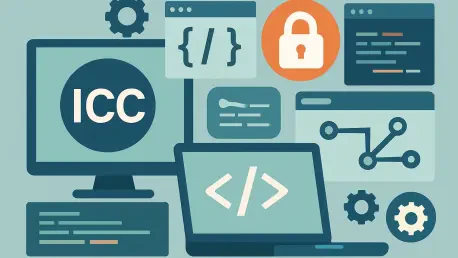In a striking and unprecedented decision, the International Criminal Court (ICC) has chosen to sever its long-standing ties with Microsoft’s Office Suite, transitioning instead to openDesk, an open-source software (OSS) developed by Germany’s Center for Digital Sovereignty (ZenDiS). This pivotal announcement, made on October 31, came as a direct response to mounting geopolitical pressures that have threatened the ICC’s operational autonomy. Far from being just a routine technological update, this shift represents a bold stand against external interference, particularly in light of U.S. sanctions imposed under the second Trump administration. These sanctions have exposed critical vulnerabilities in relying on U.S.-based tech giants, raising questions about the ICC’s ability to uphold its mission of delivering justice for international crimes. The move to OSS is not merely a practical solution but a strategic maneuver to safeguard independence in an era where technology and politics are increasingly intertwined. Beyond the ICC’s immediate context, this decision could resonate across other international judicial bodies and align with a broader global trend toward digital sovereignty. This article delves into the forces driving this transition, examines its impact on the ICC’s operations, and explores its wider implications for the intersection of technology and global justice.
Geopolitical Pressures Driving Technological Change
The decision by the ICC to abandon Microsoft’s software stems from intense geopolitical friction with the United States, a tension that has reached new heights in recent months. Sanctions imposed by the second Trump administration in 2025, targeting ICC personnel such as Prosecutor Khan, were a direct retaliation for the court’s issuance of arrest warrants against Israeli officials for alleged war crimes in Palestine. Enacted through executive orders in February and August, these measures disrupted the ICC’s day-to-day functions, with unverified reports suggesting that Microsoft temporarily cut off email access for key staff members. Such incidents, whether confirmed or not, laid bare the risks of depending on technology providers subject to U.S. political influence. The ICC’s leadership condemned these sanctions as a direct assault on judicial impartiality, arguing that they hinder the pursuit of justice for victims of international crimes. This precarious situation forced the ICC to reconsider its technological foundation, ultimately leading to the adoption of OSS as a means to insulate itself from external pressures and maintain operational continuity in the face of adversity.
Beyond the immediate disruptions, the broader geopolitical landscape has amplified the urgency of this shift. The ICC’s reliance on U.S.-based proprietary software became a glaring liability when sanctions threatened to extend beyond individuals to the institution as a whole. Emergency internal discussions revealed a consensus that continuing dependence on such technology could be weaponized to undermine the court’s independence. The transition to openDesk, therefore, is not just a reaction to current events but a proactive effort to mitigate future risks. By moving away from Microsoft, the ICC aims to reduce the leverage that foreign governments might exert through tech providers, ensuring that political disputes do not derail its core mandate. This decision reflects a growing awareness among international institutions that technological choices are no longer neutral but deeply embedded in global power dynamics.
Safeguarding Justice Through Digital Resilience
At the core of the ICC’s mission, as defined by the Rome Statute and supported by its 125 States Parties, lies the imperative to prosecute international crimes without interruption or interference. For years, Microsoft’s proprietary software underpinned nearly every aspect of the ICC’s operations, from document management to communication systems. However, this deep integration became a structural weakness when U.S. sanctions raised the specter of service disruptions. Open-source software like openDesk offers a compelling alternative with its publicly accessible code, which allows for transparency, modification, and distribution without the constraints of vendor lock-in. These features align seamlessly with the ICC’s procurement principles, which emphasize fairness, cost-effectiveness, and the court’s best interests. By adopting OSS, the ICC seeks to secure its digital infrastructure, protect sensitive information such as evidence backups, and ensure that geopolitical tensions do not impede its ability to deliver justice.
While the benefits of OSS are evident, the transition is not without its challenges and potential pitfalls. The ICC must remain vigilant about the ethical implications of using open-source tools, as “open” does not inherently mean aligned with human rights or justice. Historical examples, such as the UK’s Post Office Horizon Scandal, where faulty proprietary software led to wrongful convictions, serve as a cautionary tale about the risks of technology, whether proprietary or open. Despite these concerns, the ICC’s risk-benefit analysis concluded that OSS provides the most viable path to digital resilience. This shift is a calculated step to minimize vulnerabilities while maintaining the operational integrity required to fulfill its mandate. It also underscores a broader recognition that technological autonomy is essential for international judicial bodies operating in an increasingly volatile global environment.
Inspiring a Shift in International Judicial Systems
The ICC’s move to open-source software holds the potential to serve as a transformative example for other international courts and tribunals (ICTs) facing similar technological dependencies. Across the spectrum of global judicial bodies, reliance on Microsoft’s tools is widespread, with entities like the International Court of Justice (ICJ) utilizing Microsoft 365 Teams through partnerships with the UN International Computing Centre (UNICC). This pervasive presence of U.S.-based proprietary software creates shared vulnerabilities, especially in an era marked by escalating technology-driven trade wars. The ICC’s decision, enabled by its independent procurement authority under the Registrar, could spark meaningful dialogue among ICTs about the need to diversify their digital ecosystems. With support from shared resources like the UNICC, which offers cybersecurity and digital transformation expertise, other courts might explore similar transitions to OSS to enhance their operational security.
Moreover, the ripple effects of this decision could reshape how international judicial systems approach technological independence. The ICC’s adoption of openDesk demonstrates that alternatives to proprietary software are not only feasible but also strategically advantageous in mitigating external risks. While each ICT operates under distinct administrative frameworks—such as the ICJ’s adherence to UN procurement practices—the underlying principle of reducing reliance on dominant U.S. tech providers is broadly applicable. This pioneering step by the ICC may encourage a collective reassessment of digital strategies, fostering a more resilient network of international justice institutions. As geopolitical pressures continue to influence technological access, the ICC’s transition could mark the beginning of a wider movement toward safeguarding judicial independence through innovative software solutions.
Aligning with a Global Push for Digital Autonomy
The ICC’s embrace of openDesk resonates with a burgeoning global trend toward digital sovereignty, where nations and institutions strive to protect their technological infrastructure from external political and economic influences. Across Europe, public administrations are increasingly moving away from Microsoft in favor of OSS to bolster data security and autonomy. Regional efforts in areas like Germany’s Schleswig-Holstein, Spain’s Andalusia, and France’s Lyon, alongside national initiatives in Denmark and Austria, reflect a concerted push to reduce dependency on dominant U.S. tech firms, which hold significant market shares in public sector software. The European Union has further supported this shift through frameworks like the Digital Commons EDIC, providing critical infrastructure for digital independence that the ICC directly benefits from with its adoption of openDesk.
This alignment with broader trends positions the ICC as both a participant in and a contributor to the movement for digital sovereignty. The United Nations also endorses OSS through principles like “open by default,” signaling a global consensus on the importance of resilient digital ecosystems. By leveraging European and international support, the ICC’s transition underscores the interconnectedness of local, regional, and global efforts to create technology systems less susceptible to geopolitical interference. This strategic alignment not only strengthens the ICC’s operational foundation but also reinforces the idea that technological autonomy is a shared priority across diverse institutions. As more entities adopt OSS, the collective push toward digital independence gains momentum, potentially reshaping the global tech landscape in favor of transparency and self-reliance.
Addressing the Challenges of Open-Source Adoption
While the shift to open-source software offers undeniable advantages, it also presents a complex set of challenges that the ICC must navigate with care. One significant concern is ensuring that OSS aligns with the court’s commitment to justice and ethical standards. The open nature of such software, while promoting transparency, does not automatically guarantee compliance with human rights principles. Additionally, geopolitical nuances within the OSS ecosystem pose potential risks; for instance, Microsoft’s ownership of GitHub, a major repository for open-source projects, has led to restrictions on accounts under U.S. sanctions. The ICC must therefore approach this transition with a critical eye, ensuring that its adoption of openDesk does not inadvertently expose it to new vulnerabilities or ethical dilemmas.
Furthermore, the process of disentangling decades of reliance on proprietary software is neither simple nor instantaneous. It requires meticulous planning, resource allocation, and staff training to ensure a seamless integration of OSS into the ICC’s workflows. The court must balance the pursuit of innovation with the need for accountability, establishing robust safeguards to prevent misuse or misconfiguration of open-source tools. By addressing these challenges head-on, the ICC can set a precedent for how international institutions can responsibly adopt OSS without compromising their core values. This careful navigation will be crucial in demonstrating that technological independence can be achieved without sacrificing the integrity of judicial processes, paving the way for sustainable digital transformation.
Charting a Path Forward in a Digital Age
Reflecting on this landmark shift, the ICC’s decision to adopt openDesk marked a critical turning point in its efforts to preserve independence amid geopolitical turbulence. The move away from Microsoft’s proprietary software was a direct response to U.S. sanctions that threatened to disrupt essential operations, highlighting the urgent need for technological autonomy. By embracing open-source solutions, the ICC not only addressed immediate vulnerabilities but also positioned itself as a leader in navigating the complex intersection of technology, law, and global politics. This transition, though fraught with challenges, underscored a vital lesson: digital resilience is indispensable for the future of international justice. Looking ahead, the focus must shift to refining this adoption process, ensuring that ethical standards remain paramount while exploring scalable solutions for other judicial bodies. Collaborative efforts with entities like the UNICC and leveraging global trends toward digital sovereignty will be essential in building a more secure framework for justice in an increasingly digital world.









